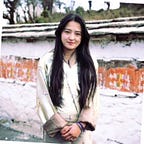Eastern Healing
As an indigenous person, my values incline toward spiritual healers. Indigenous communities seek help from their community before reaching out or even considering medical science. It is the upbringing and trust you have in that ritual of healing.
These are some of the factors which Indigenous people rely on to cope with mental illness.
Strong identification with a culture
Family
Enduring spirit (stubborn, hard to accept change)
Connection with the past
Traditional health practices (e.g., ceremonies)
Adaptability
Wisdom of elders
My sister has done an intensive study on public health and has done research on mental health in Bhutan. While recently talking to her about the eastern healing method of mental health. The diagnosis is given to a person by a shaman or a spiritual healer described as a lost soul. The person who has withdrawn from the community feels disconnected and unable to cope with daily life. In medical science, the person has all the symptoms of depression.
There needs to be more verbal communication in eastern culture, and counselling might not work because of cultural differences. I like to get it out of my chest and let my concerns be heard. My healer, whom I call Ashim (elder sister), is a Bhutanese. She does energy healing. We sit together every once in a while, and she uses energy healing to cleanse my energy.
She tells me if there are imbalances in my chakra and points to a certain point in my life if I had a strong impression or an emotional trauma. So first, she pointed out something had happened to me at which point in my life. And sometimes, trauma is from prenatal, before I was born, and trauma passed down from ancestors. So then we work on breaking the generational and present life trauma. I have to close my eyes, put my hand into a mudra, and count from 10 to 1. After I reach 1, I seek completion and relive all the incidents that my healer had pointed out earlier. So then I do meditation while Ashim cleanses my energy.
The session lasts for almost 2 hours, and sometimes she sees visions. And we figured out the link connected to the picture. It doesn't sound effortless initially, but it gets easier once you get into the loop.
It is similar to western counselling; we chat between things that are concerning or things that are going well. It is the cleansing of energy, which happens at a cellular level. Ashim does not prescribe medicine that heals only on the conscious level. Instead, she seeks power from the divine, which reaches the core, called the superconscious level.
When a situation is out of control or affects us negatively, making a core memory or going through a traumatic incident, one has to recognize and be aware instead of ignoring, avoiding, running away, and waiting till it reaches a breaking point. Be in complete understanding and recognition to let the healing energy.
As humans, we cannot be in a state of awareness and recognition all the time, but we must hold that space and power to be aware. It is easy to get shaken up by unfamiliar emotions or situations, but to call our poise back each time we face problems is a practice we need to instil.
Ashim says we must seek completion if we harbour negative emotions toward others. Just say I seek completion and say the name of the person, relive the incident, or just the name of the person that also works.
Why seek completion?
Because we are breaking the cycle of negative emotions and protecting ourselves from accumulating bad karma, as a Buddhist, it is the highest priority to steer clear of negative karma as it affects our next life. So everyone who is in our life plays an important role. Even a person passing a glance or smiling at strangers on the subway or the bus impacts our karma. To end the cycle of birth and death, we need to complete the process of karma. The ultimate goal is to reach nirvana, where there is no death or birth, only bliss.
Healing is finding a personal tool kit. We take bits and pieces of things that resonate with us. A journey of thousands of miles without tools is a bumpy road. To find means to understand how the world works.
